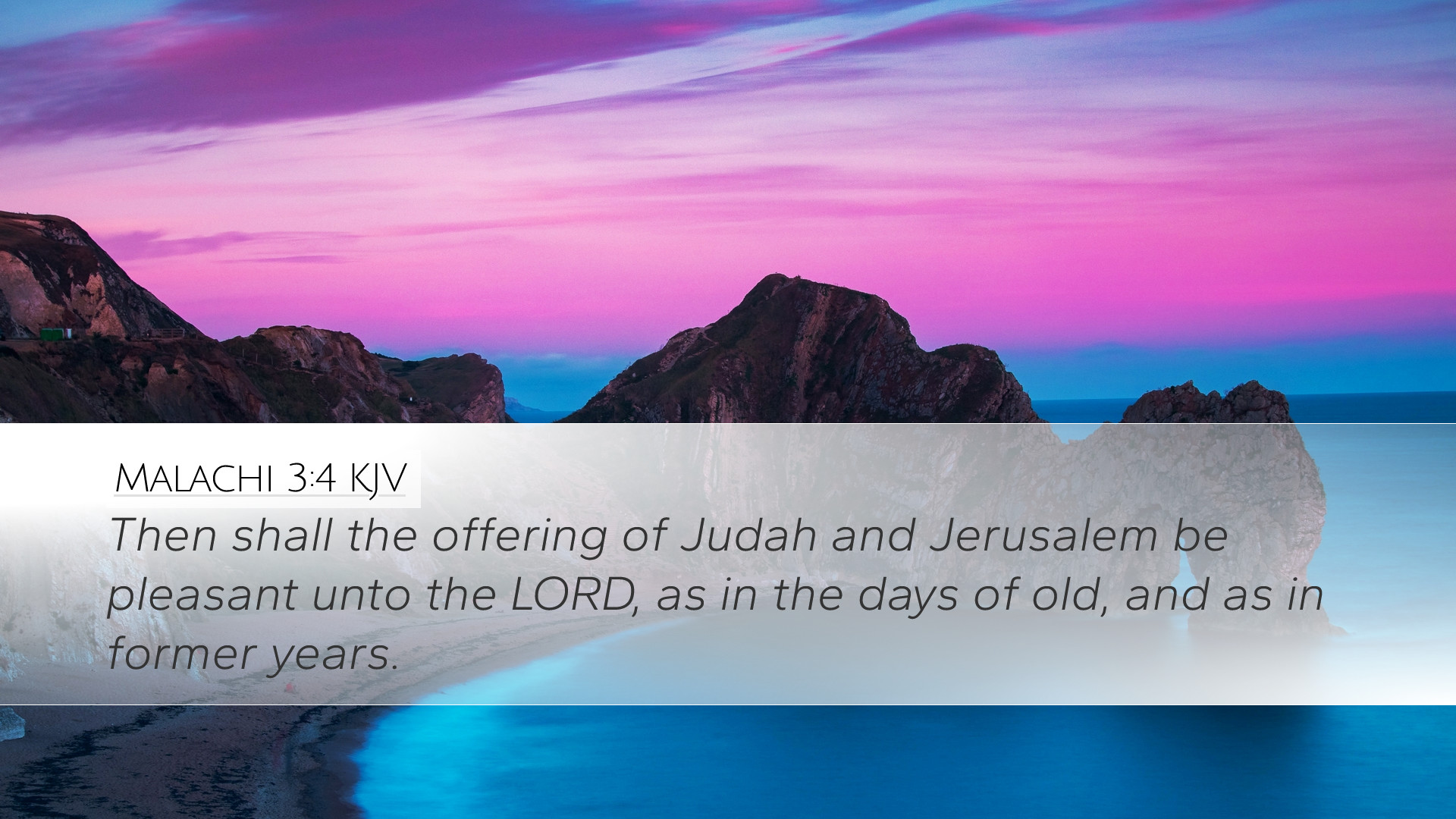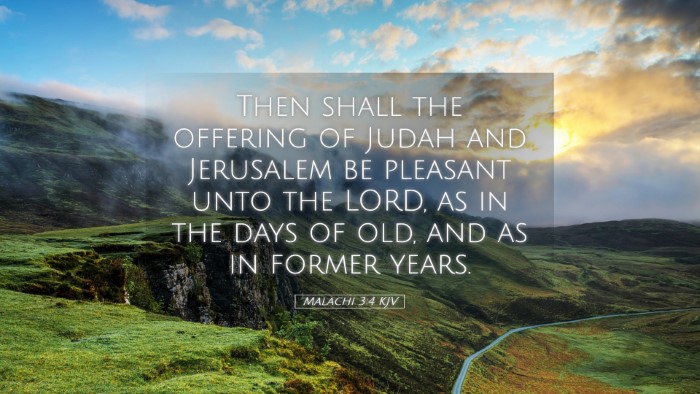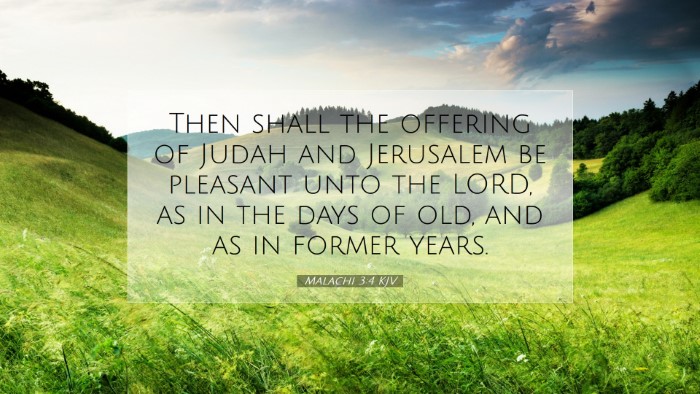Old Testament
Genesis Exodus Leviticus Numbers Deuteronomy Joshua Judges Ruth 1 Samuel 2 Samuel 1 Kings 2 Kings 1 Chronicles 2 Chronicles Ezra Nehemiah Esther Job Psalms Proverbs Ecclesiastes Song of Solomon Isaiah Jeremiah Lamentations Ezekiel Daniel Hosea Joel Amos Obadiah Jonah Micah Nahum Habakkuk Zephaniah Haggai Zechariah MalachiMalachi 3:4
Malachi 3:4 KJV
Then shall the offering of Judah and Jerusalem be pleasant unto the LORD, as in the days of old, and as in former years.
Malachi 3:4 Bible Commentary
Commentary on Malachi 3:4
Malachi 3:4 states, "Then the offering of Judah and Jerusalem will be pleasing to the Lord, as in the days of old, as in former years." This verse is rich in theological implications and provides profound insights into the nature of worship and divine acceptance. Below, we present a synthesis of insights from esteemed public domain commentaries to offer a comprehensive understanding of this scripture.
1. Contextual Background
Malachi, the last book of the Old Testament, serves as a vital link to the coming of Christ. This prophetic message arises in a post-exilic context, where the people of Israel have returned from Babylonian captivity to find their spiritual and communal life deficient. The book addresses issues of faithfulness, worship, and social justice. The promise of restored offerings in Malachi 3:4 signifies a return to fidelity in worship and the restoration of covenantal relationships.
2. Theological Insights
In this verse, one can discern several crucial theological themes:
- The Nature of Worship: Worship that pleases God is grounded in sincerity and obedience. Matthew Henry emphasizes the importance of heartfelt offerings rather than mere ritualistic practices devoid of meaning.
- Restoration and Renewal: The mention of "Judah and Jerusalem" signifies a collective identity, suggesting that the restoration involves both individuals and the community. Albert Barnes highlights the significance of communal worship in a context where people often drift into self-centered practices.
- Historical Reflection: The phrase "as in the days of old" calls the people to remember their former devotion. Adam Clarke notes that nostalgia for past spiritual vitality is vital for inspiring current and future dedication to God.
3. Exegesis of Key Terms
To grasp Malachi 3:4 fully, it is essential to analyze key terms within the passage:
- Offering: The Hebrew term for 'offering' encompasses various forms of sacrifices, indicating expressions of gratitude, atonement, and communal unity. This suggests that all aspects of life must be offered to God.
- Pleasing: This term implies acceptance by God. As Matthew Henry highlights, it reflects the divine judgment that assesses not just the action, but the intentions behind the actions.
4. Historical and Cultural Considerations
The cultural context during Malachi’s time involved post-exilic struggles, including economic hardship and social injustice. Malachi addresses these issues as part of a larger call for sincerity in worship. Clarke emphasizes that offerings were to reflect ethical and moral dimensions of the community, thus ensuring that worship was not superficial but resonant with justice and integrity.
5. Practical Implications for Today
For pastors, students, and theologians, Malachi 3:4 prompts reflection on several practical implications:
- Integrity in Worship: Modern worship should transcend mere rituals, seeking to align with God’s will. This can inspire leaders to create environments of genuine worship where congregants feel compelled to offer their whole selves (spiritually, emotionally, and physically) to God.
- Community and Connection: Understanding the communal aspect of worship encourages congregations to engage more deeply with each other, fostering unity and mutual encouragement rather than isolation.
- Reflection on the Past: Cultivating a sense of historical awareness among believers can reinvigorate their spirituality, leading them to consider the implications of their faith on both personal and communal levels.
6. Conclusion
Malachi 3:4 serves as a powerful reminder of the nature of acceptable worship in the eyes of God. Through insights gleaned from public domain commentaries, we see the call for a heartfelt, community-oriented, and historically informed practice of worship that honors God. Pastors, students, and theologians are encouraged to explore these themes not only for their theological richness but for their transformative potential in the life of individuals and congregations alike.


